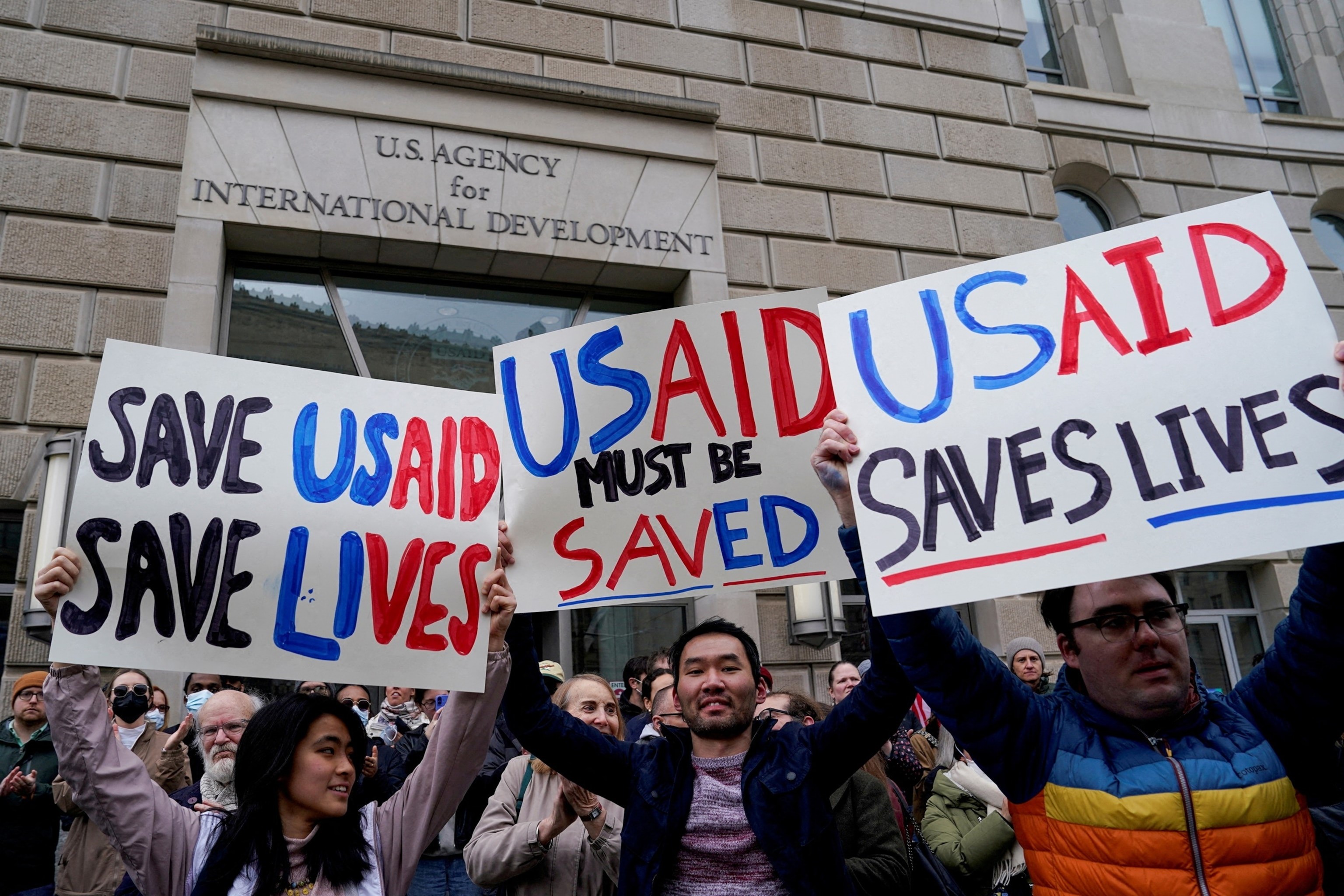We need a more self-reliant development model

Like many countries, Bangladesh was caught off guard by the speed and extent of USAID funding cuts under the Trump administration. Although there is no official data on how many people have lost, or may lose, their jobs due to the freezing of funds, estimates from the development sector suggest that between 30,000 and 40,000 people may be affected. This is deeply concerning, particularly because it will put significant strain on the economy.
According to diplomatic sources, USAID provides Bangladesh with $300-400 million annually for health, nutrition, agriculture, livelihoods, labour rights, human trafficking prevention, and democratic development. These funds have been instrumental in Bangladesh's progress in areas such as maternal health, climate resilience, and rural development. However, following Donald Trump's inauguration as US president on January 20, his administration swiftly suspended most USAID funding and activities, except for emergency food aid, including assistance for Rohingya refugees in Bangladesh. This move has not only left thousands of development workers unemployed but also cast severe doubt over the future of various development projects.
Many development projects currently facing an existential crisis are similarly essential not only for their beneficiaries but also for society at large. As such, the government must not allow them to collapse. It should instead conduct a thorough evaluation to identify the most critical initiatives and explore ways to sustain them. This could include direct government funding for the high-priority projects, partnerships with international organisations, or securing alternative donor support. NGOs, too, must adapt by assessing their efficiency, optimising operational costs, and exploring sustainable funding sources.
Many of these now-unfunded projects serve the most vulnerable segments of our society. Whether providing crucial immunisations, essential medicines, affordable birth control, or income-generating opportunities for the poor, their loss will have a far-reaching impact. Some projects also focus on promoting workers' rights or supporting labour-related cases. With funding now frozen, many of these labour rights initiatives could be sidelined, leaving workers even more vulnerable to exploitation. In a country like Bangladesh, where a significant portion of the workforce is employed in the informal sector with weak labour protections, this could be devastating.
Many development projects currently facing an existential crisis are similarly essential not only for their beneficiaries but also for society at large. As such, the government must not allow them to collapse. It should instead conduct a thorough evaluation to identify the most critical initiatives and explore ways to sustain them. This could include direct government funding for the high-priority projects, partnerships with international organisations, or securing alternative donor support. NGOs, too, must adapt by assessing their efficiency, optimising operational costs, and exploring sustainable funding sources. Without compromising beneficiary support, they should implement cost-saving measures and seek collaborations with the private sector, philanthropic institutions, and public-private partnerships to reduce dependency on foreign aid.
The USAID funding cuts have posed a serious challenge, but they also underscored the need for a more self-reliant development model. A coordinated approach by the government, NGOs, and the private sector is therefore essential to ensure that crucial programmes continue to serve those who need them most.



 For all latest news, follow The Daily Star's Google News channel.
For all latest news, follow The Daily Star's Google News channel. 


Comments